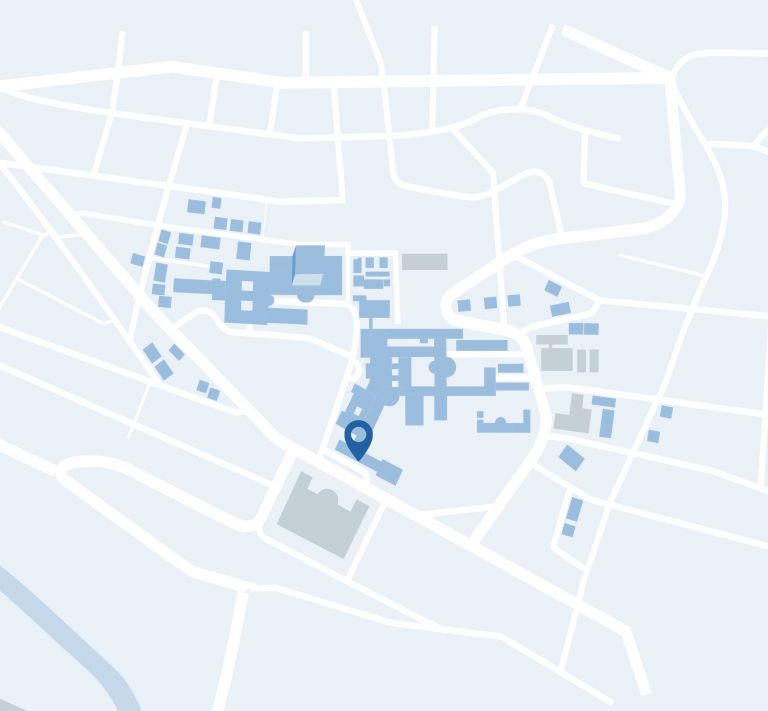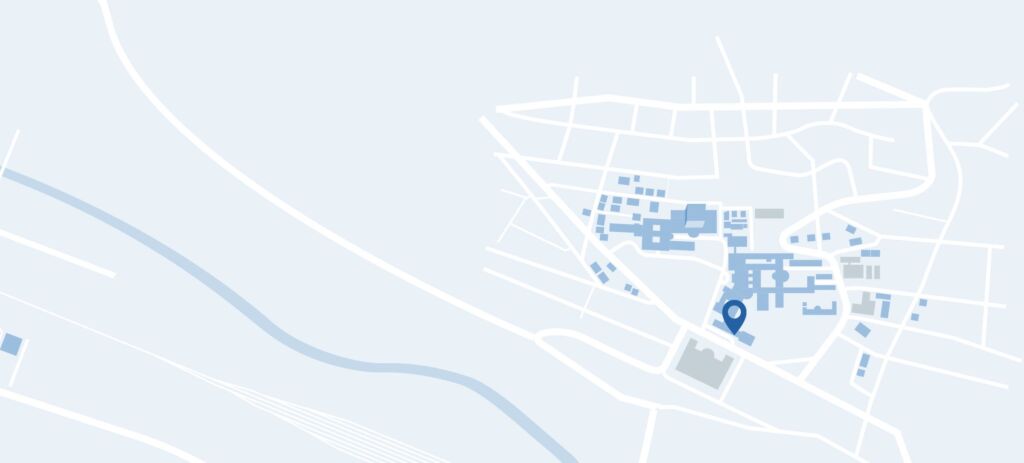Simulation Center
The simulation center is a state-of-the-art environment for medical excellence. Equipped with state-of-the-art simulation infrastructure, we create new, innovative interfaces for the medicine of the future by integrating technology, training and research. We offer healthcare professionals realistic, relevant and evidence-based training. With us, you can train simple to complex skills in an interprofessional team. By combining the latest technology, innovative training and further education and translational simulation research, we aim to improve medicine for the patients of today and tomorrow.
Our trainings
The following services contribute to this:
- Patient-centered simulation:
- In interdisciplinary and interprofessional team training train cooperation in clinical reality across disciplines, professions and hierarchies and increase the holistic understanding of patient treatment.
- Simulating cultural diversity enables medical teams to navigate cultural contexts with empathy and understanding and emphasizes the importance of empathy and effective communication in patient care.
- Realistic, immediate and specific feedback on the patient’s experience through embedded simulated persons makes learning effective.
- Real people are protected by hybrid simulations with highly realistic, robotic and immersive patient simulators that can represent a wide range of illness and injury scenarios including physiological parameters (e.g. pulse, blood pressure, respiratory rate).
- Ethical dilemma scenarios for making joint, ethically responsible decisions in complex situations are integrated into the training.
- Learning engineering for effective, personalized and sustainable learning experiences
- Simulation enables a transformative learning experience for a wide range of medical disciplines (e.g. anesthesiology, dermatology, obstetrics, intensive care, neonatology, traumatology) through experiential learning and hands-on training of complex patient treatment processes.
- Adapted simulations, technologies and educational approaches enable immersive action, feedback and reflection to go hand in hand.
- High-impact, personalized and adaptive learning to deal with increasing complexity is based on state-of-the-art science.
- Interactions with patients and relatives, with new technologies and within the treatment team are the focus of learning.
- Worldwide partnerships with international institutions and healthcare facilities are created to establish an International Community of Practice.
- Translational research and innovation through simulation
- The simulation center is a platform for translational research and the development of new, pioneering medical technologies.
- Translational, interdisciplinary system tests of new medical environments support risk management.
- New bridges between disciplines are accelerating medical progress.
- In cooperation with ETH Zurich, the integration of machine learning and behavioral observation enables the development of new methods for measuring dynamics in medical teams.
- The simulation center is an incubator for innovations in medicine and medical education (e.g. functionality and effectiveness of new monitoring technologies and artificial intelligence; handling of artificial intelligence in the treatment team) and the infrastructure for the development of new simulation technologies and methods, incl. Best practices (e.g. virtual & augmented reality, artificial intelligence).
- Establishment of national and international partnerships with companies and research institutions and realization of interdisciplinary, translational synergy projects
- Medical training:
- Early practice in realistic clinical scenarios (e.g. Human Medicine BSc program, ETH Zurich; UZH). This makes it possible to take on the perspective of other team members.
Fancy simulation training?
Frequently asked questions to the simulation center
In simulation training, we recreate real cases or processes in a controlled environment in order to further develop practical team skills, improve problem-solving skills or practise specific situations. We simulate defined medical situations, e.g. complications during childbirth, discussions with patients and their relatives or the treatment of a polytrauma in the shock room. These simulations can take place primarily in the simulation center or on site in the department / ward (in-situ simulation):
The advantage of simulation training is that it provides a safe environment in which to try out new skills and learn from mistakes without serious consequences. It enables learners to gain practical experience before they go out into the real world. Simulation training helps to improve efficiency, safety and performance in various professional fields.
Our serviceA debriefing is the structured debriefing of the simulated case and is crucial for learning from the scenarios. By sharing perspectives, identifying key moments and developing action plans, it promotes individual and collective learning. This method is often used to improve performance and identify sources of error.
Our service“Speaking up” means daring to express safety concerns and listening to others. Speaking Up is central to the quality of care and patient safety, but at the same time challenging. In our simulation training sessions, we discuss reasons and possible solutions.
More on the topicRegister for the simulation instructor course.
To the courseThis depends on the frequency and interval of the training sessions and the number of co-instructors. The preparations for a simulation training course (whether one day or a week) roughly amount to one to two days for concrete planning.
To the courseAllow four hours. It takes about an hour to convey the concerns of the simulation and to familiarize the participants with the simulation environment. This is followed by two simulated cases lasting around a quarter of an hour, followed by half-hour debriefings. There are also breaks and the evaluation of the training sessions.
To the team training sessionsTwo cases are trained in a half-day training course (four hours).
During a day’s training (seven hours), three to four cases are trained.
Most skills trainers need an introduction. Please get in touch with us.
After the introduction, you can register and book an appointment at any time.

